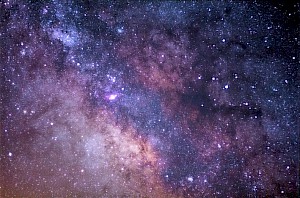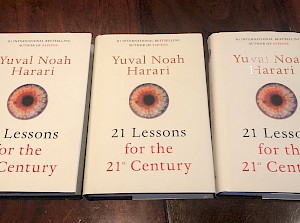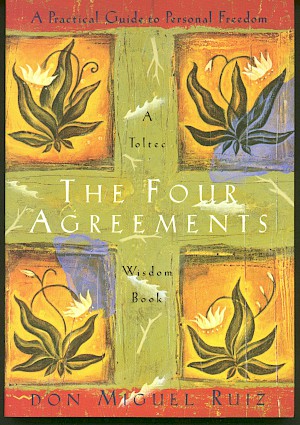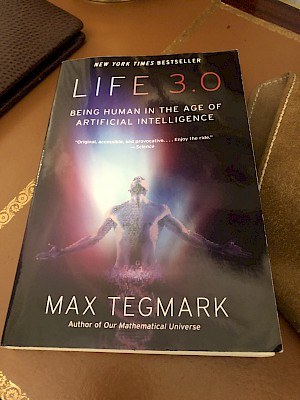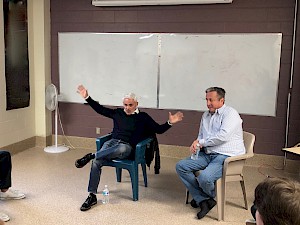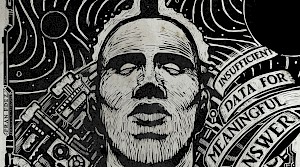Consciousness
September 26, 2019As is my habit, I have spent the best part of the year nerding out in my spare time. My current fascination is consciousness and the future of artificial intelligence (AI). Both will have a profound impact, either as an existential threat or as a hugely beneficial enhancement to our species, in the not so distant future. My “nerding” has included reading several books and articles and watching dozens of lectures on YouTube. I recently began writing a piece connecting the two, but soon found that there is far too much complexity to cover in a single blog. So, I will be writing on these topics in several parts in the coming weeks.
My curiosity with consciousness evolved from my interest in quantum physics which I have been reading about over the past several years (see my article, “How I Came to Love Physics, and Other Mysteries of the Universe”). Through decades of experiments, scientists have discovered that the behaviour of the tiniest of particles that make up atoms are, well, wacky. They often behave in ways that do not reconcile with reality as we know it. Take for example how particles behave when being watched. Without getting into a lengthy explanation, let’s just say that particles seem to “know” when they are being observed and will transform from being a mere probability wave into a single particle when watched. Scientists have tried some very complex experiments to trick these particles into not knowing they are being viewed. In one sophisticated experiment, the probability wave actually went BACK in time and reconfigured itself into a particle when it figured out it was being observed. Of course, there are many theories that give logical explanations to this weird behaviour, but nothing has been proven.
What I find fascinating about these experiments is the questions they raise; is consciousness needed for reality to exist, or does consciousness influence any given outcome in our reality? They are the kind of questions Greek philosophers pondered. Plato believed forms are not physical objects, but instead are only known through the mind.
Before we examine what these experiments may suggest about our reality and the future of AI, we need to examine what consciousness actually is.
Consciousness, and how or whether the brain creates it, is a difficult concept to comprehend.
Though scientists have proposed many biological explanations for how our brains create consciousness, a thorough understanding still eludes us.
Wikipedia describes consciousness as “the state or quality of sentience or awareness of internal or external existence.” Basically, knowing that you exist, and knowing that you know you exist. Something not even the most powerful computers can do…yet.
To better understand consciousness, we need to differentiate between the brain and the mind. The brain is the physical structure. The mind is the product of brain activity - all those firing neurons. But growing evidence shows that the mind goes far beyond the physical workings of your brain.
The mind is the set of cognitive faculties including consciousness, imagination, perception, thinking, judgement, language, and memory, housed in the brain. But, where in the brain? Well, we don’t really know. Most scientists believe the cerebral cortex gives rise to consciousness, but the issue is not settled.
I have read a few theories that try to explain how consciousness arises. I quickly learned one must have a rich background in math and physics to really understand this stuff...I confess, I am just a curious lay person in these matters.
One controversial theory is the Orch-OR theory, developed by Sir Roger Penrose and Stuart Hameroff.
Penrose argues that consciousness might be fundamentally non-algorithmic, and therefore incapable of being modeled as a computer would be. He further argues that this non-algorithmic process in the brain requires a new form of the quantum wave reduction, which could link the brain to the forces that govern time and space (Einstein’s relativity theory). Our brain may be picking out something “out there” that we don’t yet understand. Penrose believes that a “proto-consciousness field” could extend through all of space. Stars may be thinking entities that deliberately control their paths. Put more bluntly, the entire cosmos may be self-aware. Perhaps our minds are like a large satellite dishes tapping into a universal consciousness?
A more recent theory of consciousness is getting an enthusiastic reception from the scientific community. Giulio Tononi, a neuroscientist at the University of Wisconsin-Madison developed the “Information Integration Theory.” He believes the MORE information that is shared and processed between many different components, the HIGHER the level of consciousness in a single experience. The interesting thing about this theory, is that it applies to all systems, not just biological ones.
Why is the study of consciousness so important? And what does all this have to do with the future of artificial intelligence and our own survival as a species? Think about the implications of this recent quote from Elon Musk, “With artificial intelligence we are summoning the demon. In all those stories where there’s the guy with the pentagram and the holy water, it’s like yeah he’s sure he can control the demon. Didn't work out.” His concerns about the danger that AI poses to mankind are shared by many, including Bill Gates and the late Stephen Hawkings.
One conjures scenes from the movie The Terminator, where Skynet, an artificial intelligence system, becomes self aware and sparks a nuclear holocaust to eliminate mankind, presumably, because we would no longer serve a purpose and/or we might try to shut it off at some point. I remember seeing this movie when it first came out and I was always fascinated by the idea that a machine could become self aware. Now I wonder what’s the tipping point where it becomes an existential threat?
AI is advancing at an exponential rate. World renown futurist, Ray Kurzweil predicts it will reach and quickly surpass all levels of human intelligence by 2029. But can it ever achieve self awareness or consciousness? That remains to be seen. But the way I see it, it would be wise to understand whether consciousness can create itself outside the human experience BEFORE we let it off the proverbial leash. That is, if it’s not already too late.
In upcoming posts, I will be exploring the arguments about the future of AI, whether consciousness can be artificially created, and if self awareness is even needed for AI to expose us to an existential danger.



